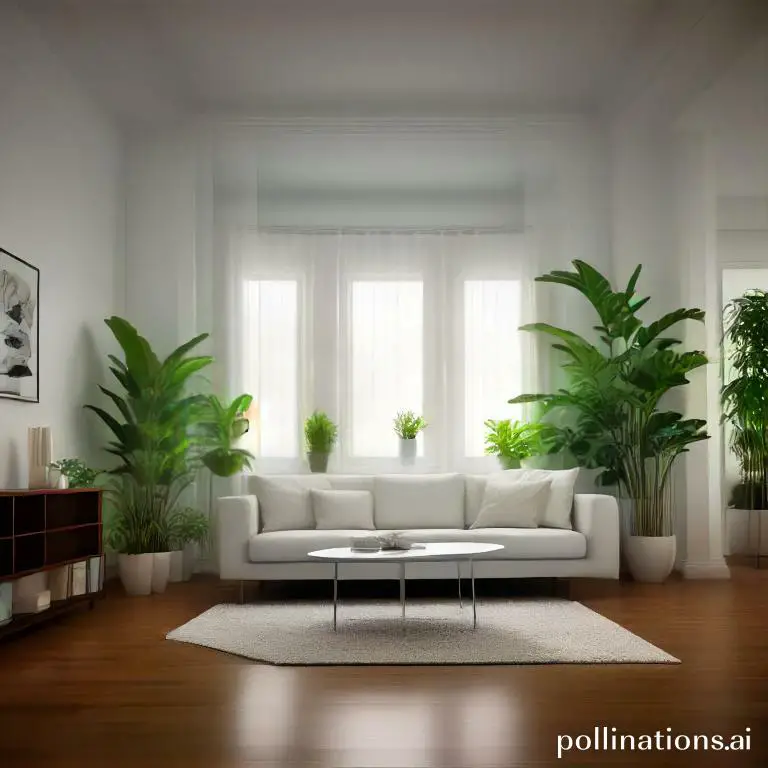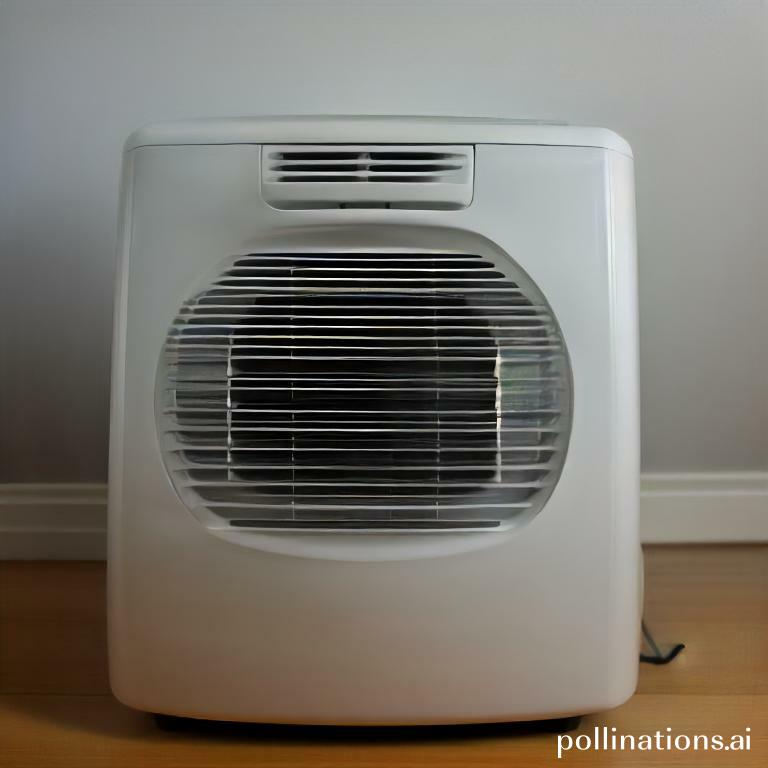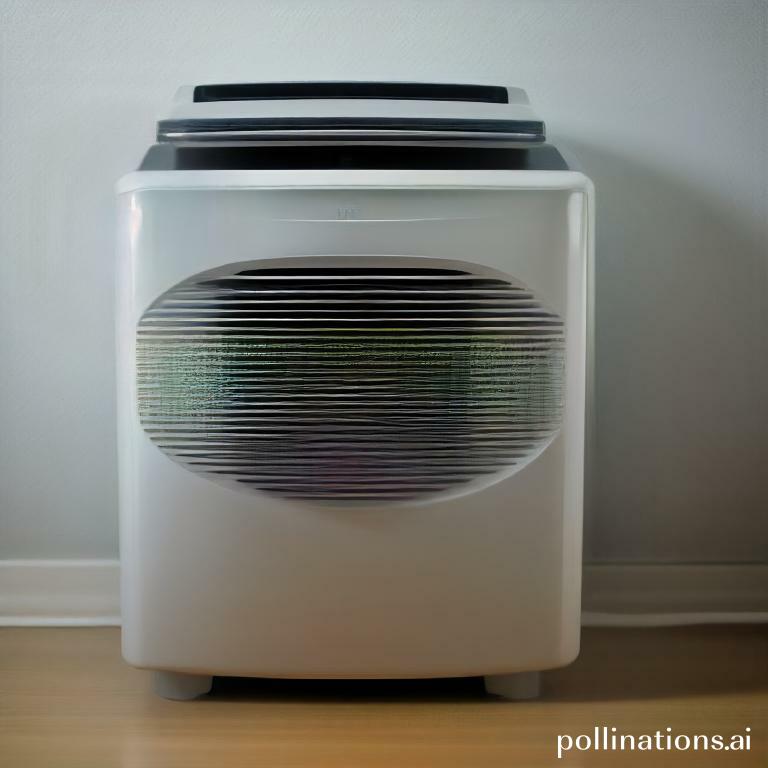
Check Out The Exclusive Deals Waiting For You! ∇
No products found.
How HVAC Air Purifiers Work
As for maintaining clean and healthy indoor air quality, HVAC air purifiers play a crucial role. These innovative devices utilize a filtration process to effectively remove pollutants and improve the overall air quality in your home or office.
1. Filtration Process and its Effectiveness in Removing Pollutants
The filtration process of HVAC air purifiers involves the removal of various airborne contaminants such as dust, pollen, pet dander, mold spores, and even harmful bacteria and viruses. These pollutants can trigger allergies, respiratory issues, and other health problems, so it is essential to have an efficient air purifier in place.
The effectiveness of HVAC air purifiers in removing pollutants depends on the quality of the filters used. High-efficiency particulate air (HEPA) filters are considered the gold standard in air purification. These filters can capture particles as small as 0.3 microns with an efficiency of 99.97%. By trapping these tiny particles, HEPA filters ensure that the air you breathe is virtually free from harmful pollutants.
2. Different Types of Filters Used in HVAC Air Purifiers
HVAC air purifiers utilize different types of filters to cater to specific air quality needs. The most common types of filters include:
- Pre-Filters: These filters are the first line of defense and capture larger particles like dust and pet hair.
- Activated Carbon Filters: These filters are effective in removing odors, gases, and volatile organic compounds (VOCs) from the air.
- UV-C Light Filters: These filters use ultraviolet (UV) light to neutralize and destroy airborne microorganisms, including bacteria and viruses.
Combining these filters in an HVAC air purifier ensures comprehensive air purification, making your indoor environment clean and fresh.
| Type of Filter | Function |
|---|---|
| Pre-Filters | Capture larger particles like dust and pet hair |
| Activated Carbon Filters | Remove odors, gases, and VOCs |
| UV-C Light Filters | Neutralize and destroy airborne microorganisms |
Common pollutants addressed by HVAC air purifiers
In regard to maintaining clean and fresh indoor air, HVAC air purifiers play a crucial role. These innovative devices are designed to remove various pollutants that can affect the air quality in your home or office. In this section, we will traverse the common pollutants that HVAC air purifiers effectively address, ensuring a healthier environment for you and your loved ones.
Dust and allergens
Dust and allergens are some of the most common pollutants found in indoor spaces. They can trigger allergies and respiratory issues, making it essential to eliminate them from the air. HVAC air purifiers are equipped with advanced filters that capture and trap these psections, preventing them from circulating in your living or working area.
Mold spores and mildew
Mold spores and mildew are not only unsightly but can also pose a threat to your health. Breathing in mold spores can lead to respiratory problems and allergic reactions. HVAC air purifiers effectively target and remove these pollutants, reducing the risk of mold growth and improving indoor air quality.
Pet dander and odors
If you have pets, you are likely familiar with the challenges of controlling pet dander and odors. HVAC air purifiers are designed to tackle these issues by capturing pet dander and neutralizing unpleasant smells. With the help of these purifiers, you can enjoy the company of your furry friends without worrying about allergens or lingering odors.
VOCs and chemical pollutants
Volatile Organic Compounds (VOCs) and chemical pollutants can be present in indoor environments due to various sources such as cleaning products, paints, and furniture. These pollutants can have detrimental effects on your health. HVAC air purifiers are equipped with filters that can effectively remove VOCs and chemical pollutants, ensuring cleaner and healthier indoor air.
| Common Pollutants | HVAC Air Purifiers |
|---|---|
| Dust and allergens | ✓ |
| Mold spores and mildew | ✓ |
| Pet dander and odors | ✓ |
| VOCs and chemical pollutants | ✓ |
Benefits of using HVAC air purifiers
Improved indoor air quality and respiratory health
In regard to creating a healthy and comfortable living environment, indoor air quality plays a crucial role. HVAC air purifiers are a fantastic addition to any home or office space as they effectively remove contaminants from the air. By using advanced filtration systems, these purifiers can capture and eliminate psections such as dust, pollen, pet dander, and even harmful bacteria and viruses. This results in cleaner and fresher air, which can significantly improve respiratory health.
With HVAC air purifiers, you can bid farewell to stuffy and polluted indoor air. These purifiers work tirelessly to ensure that the air you breathe is of the highest quality, free from pollutants that can trigger allergies or worsen respiratory conditions like asthma. By purifying the air, they create a healthier environment for you and your loved ones, reducing the risk of developing respiratory issues and promoting overall well-being.
Reduction in allergy and asthma symptoms
Allergies and asthma can be a constant struggle for many individuals. The presence of allergens and irritants in the air can trigger uncomfortable symptoms, making it challenging to lead a normal life. HVAC air purifiers can provide much-needed relief by effectively removing these triggers from the air.
Overall, HVAC air purifiers offer numerous benefits, including improved indoor air quality, enhanced respiratory health, and a reduction in allergy and asthma symptoms. Investing in an HVAC air purifier is a wise decision that can have a positive impact on your well-being. With their advanced filtration systems and powerful performance, these purifiers ensure that you can enjoy clean, fresh, and allergen-free air every day. Take control of your indoor air quality and experience the difference that HVAC air purifiers can make.
Factors to consider when choosing an HVAC air purifier
In regard to selecting an HVAC air purifier, there are several important factors to keep in mind. These factors will not only determine the effectiveness of the purifier but also ensure that it meets your specific needs and requirements. In this section, we will pioneer the key considerations when choosing an HVAC air purifier, including size and capacity, noise level and energy efficiency, and maintenance and filter replacement.
1. Size and capacity of the air purifier
One of the first factors to consider is the size and capacity of the air purifier. This will depend on the size of the space you want to purify. It’s essential to choose an air purifier that is suitable for the square footage of the room or area where it will be installed. A properly sized purifier will ensure optimal air purification and circulation, providing you with clean and fresh air.
2. Noise level and energy efficiency
Noise level and energy efficiency are crucial considerations when selecting an HVAC air purifier. You want a purifier that operates quietly, especially if it will be installed in a bedroom or living area. Look for purifiers with low decibel ratings to ensure a peaceful and undisturbed environment. Additionally, energy efficiency is important to minimize electricity consumption and reduce energy costs. Choose a purifier that has an energy-efficient rating to save money and promote eco-friendly practices.
3. Maintenance and filter replacement
Regular maintenance and filter replacement are essential for the optimal functioning of an HVAC air purifier. It’s important to choose a purifier that is easy to clean and maintain. Look for purifiers with washable filters or filters that are easy to replace. Additionally, consider the cost and availability of replacement filters. It’s recommended to choose a purifier with filters that are readily available and reasonably priced to ensure long-term affordability and convenience.
| Factors to consider | Key Points |
|---|---|
| Size and capacity | Choose a purifier suitable for the room’s square footage |
| Noise level and energy efficiency | Look for quiet operation and energy-efficient ratings |
| Maintenance and filter replacement | Ensure easy cleaning, availability, and affordability of filters |

Tips for maintaining and maximizing the efficiency of HVAC air purifiers
1. Regular cleaning of filters and vents
To ensure the utmost effectiveness of your HVAC air purifier, it is crucial to regularly clean the filters and vents. In doing this, you can prevent the accumulation of dust, allergens, and other pollutants that may hinder the purifier’s performance. Regular cleaning will help maintain the optimal airflow and filtration capacity of the purifier, ensuring that it continues to deliver clean and fresh air to your space.
2. Placement of air purifiers for optimal air circulation
The placement of your HVAC air purifiers plays a vital role in maximizing their efficiency. It is recommended to position the purifiers strategically throughout your space to ensure optimal air circulation. By placing them in areas with high air traffic, such as hallways or common rooms, you can increase their effectiveness in capturing and removing airborne pollutants. Additionally, avoid obstructing the airflow around the purifiers by keeping them away from walls or furniture.
In the realm of maintaining and maximizing the efficiency of HVAC air purifiers, regular cleaning of filters and vents is essential. This practice ensures that the purifier can effectively capture and remove pollutants from the air, providing you with clean and fresh indoor air quality. Additionally, strategic placement of the purifiers promotes optimal air circulation, allowing them to capture pollutants more efficiently. By conforming to these tips, you can empower the performance of your HVAC air purifiers and enjoy cleaner and healthier air in your space.
Conclusion
In terms of improving indoor air quality, HVAC air purifiers can be a great solution. They are designed to remove common pollutants such as dust, pollen, and pet dander from the air, making it easier to breathe and reducing the risk of respiratory problems. That being said, it’s important to choose the right type of air purifier for your needs and to maintain it properly to ensure it continues to work effectively. Hence, you can enjoy cleaner, healthier air in your home or workplace.
Whether you’re looking to improve your home’s air quality, reduce allergens, or simply breathe easier, an HVAC air purifier can be a valuable addition to your DIY toolkit. With the right guidance and advice, you can choose the right purifier for your needs and enjoy cleaner, fresher air in no time.
Read Also:
1. Exploring electrostatic air purification for HVAC
2. The role of air purification in reducing HVAC repair frequency

